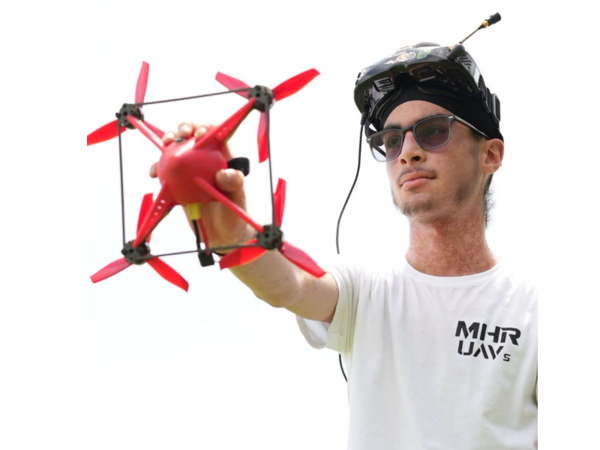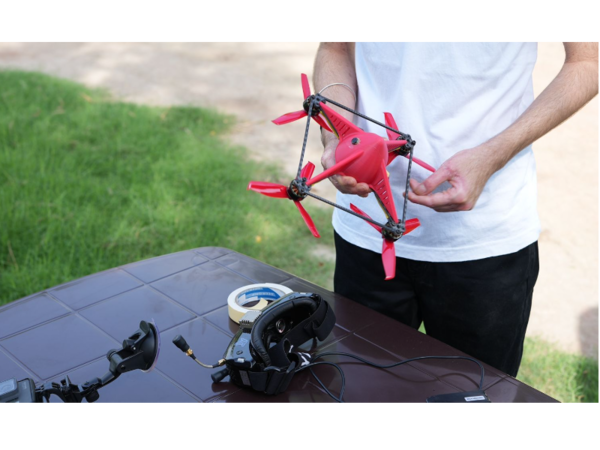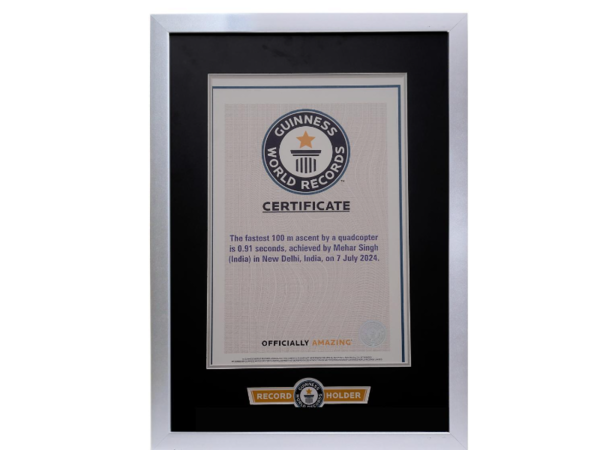
At just 17 years old, Mehar Singh has soared into the spotlight by shattering the Guinness World Record for the fastest 100-meter ascent by a quadcopter. Mehar’s custom-engineered drone reached this remarkable milestone in an astonishing 0.91 seconds, a feat that not only demonstrates his technical prowess but also sets a new benchmark in the rapidly evolving world of drone technology.
Mehar’s journey to this achievement has been anything but straightforward.
His fascination with drones began in 8th grade, and this passion has only deepened over the years. With a keen interest in pushing technological boundaries, Mehar embarked on a months-long project to build a drone capable of unparalleled vertical acceleration.
“I’ve always been fascinated by the idea of pushing the limits of what drones can do,” Mehar explained. “But breaking a world record wasn’t just about the end result; it was about the process. I wanted to prove that current technology could achieve something extraordinary, but the path to get there was filled with challenges.”
The project required Mehar to design, test, and refine multiple drone prototypes. “There were moments when I felt like I was chasing an impossible dream,” Mehar recalled. “I went through countless designs, and many of them failed during testing. Some drones crashed so badly that I had no choice but to go back to the drawing board and start from scratch. Each crash was a setback, but it also sparked new ideas and innovations.”
Undeterred by the setbacks, Mehar poured his energy into creating a drone that was not only fast but also aerodynamically optimized. “I spent countless hours on CAD software, meticulously designing and tweaking each component. The goal was to make the drone as streamlined as possible, which led me to shape it like a rocket. This design wasn’t just about aesthetics; it was about reducing drag and maximizing speed.”
Mehar’s dedication to his craft paid off in spectacular fashion. “Every failure taught me something valuable,” he said. “It forced me to think creatively and to consider every detail, from the materials used to the weight distribution of the drone. The process was grueling, but it was also incredibly rewarding to see my ideas take flight—literally.”

This record-breaking achievement is more than just a personal triumph for Mehar; it has significant implications for the future of drone technology. “The possibilities are endless,” Mehar mused. “High-speed vertical acceleration could revolutionize everything from emergency response to space exploration. This isn’t just about setting a record; it’s about opening doors to new innovations and applications.”
Mehar’s groundbreaking work has already begun to inspire others in the drone community and beyond. “I hope this accomplishment encourages other young innovators to push their own boundaries,” he said. “Technology is advancing rapidly, and there’s so much potential waiting to be unlocked. I’m excited to see where we can go from here.”

As Mehar looks ahead, the sky is truly the limit. With his record-breaking drone, he has not only made history but also set the stage for future breakthroughs in drone technology. And for this young innovator, this is just the beginning of an exciting journey into the future of flight.
Disclaimer: Content produced by Mediawire on Behalf of Shweta Singh












 English (US) ·
English (US) ·